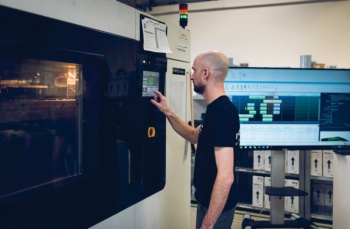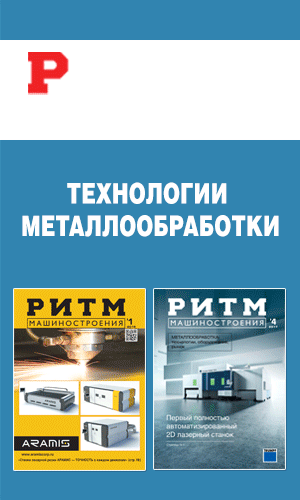
Belgian 3D printing service and software company Materialise (Nasdaq: MTLS) has announced that it has an option to acquire Link3D. The transaction will close later this year, but the company is announcing this now so that the integration of Link3D can begin. Link3D will be connected directly to Materialise Magics, allowing users to work efficiently with the leading file management software and Link3D’s Manufacturing Execution System (MES).
MES software is key in tracking and analyzing how your manufacturing process can be optimized. Often firms have no grip on or understanding of their 3D print process, the amount of scrap, waste, and the blocking elements retarding growth. MES software can help them gain control and reduce errors in these systems. What’s more, once you adopt one, you’re unlikely to change it, especially if it scales nicely along with your own growth.
Materialise already has Streamics for production management. Streamics will continue to exist for high-mix, low-volume manufacturing and specific industries. Link3D will add to their portfolio a software-as-a-service (SaaS) offering that scales and expands and can act like a gateway drug to other Materialise products. At the same time, it helps Materialise move more towards the cloud and the installed base of Link3D can be cross-sold Materialise software. Of course, the Materialise ecosystem overall becomes more valuable still. I think that this is a good move by Materialise to add Link3D to its offering right now. MESs generally help increase and act as a catalyst for faster 3D printing adoption, so, in this case, it will aid Materialise’s growth, as well.
Fried Vancraen, Materialise CEO, said of the news: “By joining forces with Link3D, we expect to be even better positioned to provide our customers with a solution to plan, manage and optimize their AM operations. This will help us to remove some of the complexity associated with scaling 3D printing as part of a connected, industrial manufacturing process.”
In advance of this announcement, we interviewed Stefaan Motte, who heads up Materialise’s software division as VP and General Manager of Materialise Software. The affable Motte says that there was an “enormous shared vision and roadmap between both firms, as well as strong shared cultural values.”
He went on to say, “Link3D and existing Materialise products are also very complementary and will help accelerate the momentum of adoption for the whole market, especially the higher volume production market. We’re now better suited to helping companies with a cloud platform solution that helps their digitization efforts and migration towards 3D printed products. Together we will build a completely integrated solution that will not be a walled garden but have connections with third parties.”
Motte also spoke to how Link3D will enable the realization of Industry 4.0:
“[We want to] bring technical things such as machine data, analytics, AI, QA, QMS to the factory floor for volume production in an industrial context with series and mass customization. For a long time, there has been a lot of talk about Industry 4.0, mass customization, and digitization, but now we are starting to see action, in part due to COVID, which has accelerated industrial transformation towards digital. What we are building together is a tangible solution that lets companies speed up their transition to manufacturing. In both batch production and high mix low volume, we’re seeing an emerging node, and nearing an inflection point for industrial production with 3D printing. Now, we can help these companies that are ready to jump into additive bring their products to market, making additive the sustainable choice for today.
MES software companies need a long runway to pay back investor money and there are quite a few out there in 3D print land, such as Authentise, 3DTrust, 3Yourmind, Oqton, and AMFG. They are all potential threats to Materialise individually and can also be tasty snacks for Siemens and Autodesk to help them encroach on Materialise’s territory. With so much investor money sloshing around, one of them could just get lucky and land an ungodly amount of cash. Indeed, Oqton raised $40 million in a series A round. Better to buy one and lock in a reduced expectation valuation than to encourage VCs to dream.
Looking at this competitive space from the point of view of the MES companies themselves, it will be a killing field. They will never have the revenue to survive the coming years. So, they will need to sell to a bigger player or live for years off of investor cash. If we look at the number of machine sales, the powder consumption, and the number of actual manufacturing sites right now, it just doesn’t add up to being able to justify the revenue that these guys need to grow. For right now, even at a 100% market penetration, this isn’t going to keep everyone in standing desks. Sure, eventually an MES will make sense, but for years it’s going to be a mess. So, one or two may make it, but the rest will be sold to software firms to facilitate their market entry. Lean ones could subsist on an installed base and then specialize and I do think that more AM software is needed. I’m a huge fan of 3DTrust’s powder management solution, for example. So, in effect, Materialise is trying to shape the market here and has made a decision: it would rather fight one horse-sized duck than 100 duck-sized horses. And, if you’re another firm looking at this market, I’d recommend that you buy all the other MES companies—a nice moment for a roll-up.


